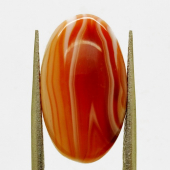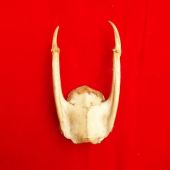Islamnya Napoleon Bonaparte
Islamnya Napoleon Bonaparte
Siapa yang tidak mengenal Napoleon Bonaparte, seorang Jendral dan Kaisar Prancis yang tenar kelahiran Ajaccio, Corsica 1769. Namanya terdapat dalam urutan ke-34 dari Seratus tokoh yang paling berpengaruh dalam sejarah yang ditulis oleh Michael H. Hart.
Sebagai seorang yang berkuasa dan berdaulat penuh terhadap negara Prancis sejak Agustus 1793, seharusnya ia merasa puas dengan segala apa yang telah diperolehnya itu.
Tapi rupanya kemegahan dunia belum bisa memuaskan batinnya, agama yang dianutnya waktu itu ternyata tidak bisa membuat Napoleon Bonaparte merasa tenang dan damai.
Akhirnya pada tanggal 02 Juli 1798, 23 tahun sebelum kematiannya ditahun 1821, Napoleon Bonaparte menyatakan ke-Islamannya dihadapan dunia Internasional.
Apa yang membuat Napoleon ini lebih memilih Islam daripada agama lamanya, Kristen ?
Berikut penuturannya sendiri yang pernah dimuat dimajalah Genuine Islam, edisi Oktober 1936 terbitan Singapura.
“I read the Bible; Moses was an able man, the Jews are villains, cowardly and cruel. Is there anything more horrible than the story of Lot and his daughters ?”
“The science which proves to us that the earth is not the centre of the celestial movements has struck a great blow at religion. Joshua stops the sun ! One shall see the stars falling into the sea… I say that of all the suns and planets,…”
“Saya membaca Bible; Musa adalah orang yang cakap, sedang orang Yahudi adalah bangsat, pengecut dan jahat. Adakah sesuatu yang lebih dahsyat daripada kisah Lut beserta kedua puterinya ?” (Lihat Kejadian 19:30-38)
“Sains telah menunjukkan bukti kepada kita, bahwa bumi bukanlah pusat tata surya, dan ini merupakan pukulan hebat terhadap agama Kristen. Yosua menghentikan matahari (Yosua 10: 12-13). Orang akan melihat bintang-bintang berjatuhan kedalam laut…. saya katakan, semua matahari dan planet-planet ….”
Selanjutnya Napoleon Bonaparte berkata :
“Religions are always based on miracles, on such things than nobody listens to like Trinity. Yesus called himself the son of God and he was a descendant of David. I prefer the religion of Muhammad. It has less ridiculous things than ours; the turks also call us idolaters.”
“Agama-agama itu selalu didasarkan pada hal-hal yang ajaib, seperti halnya Trinitas yang sulit dipahami. Yesus memanggil dirinya sebagai anak Tuhan, padahal ia keturunan Daud. Saya lebih meyakini agama yang dibawa oleh Muhammad. Islam terhindar jauh dari kelucuan-kelucuan ritual seperti yang terdapat didalam agama kita (Kristen); Bangsa Turki juga menyebut kita sebagai orang-orang penyembah berhala dan dewa.”
Selanjutnya :
“Surely, I have told you on different occations and I have intimated to you by various discourses that I am a Unitarian Musselman and I glorify the prophet Muhammad and that I love the Musselmans.”
“Dengan penuh kepastian saya telah mengatakan kepada anda semua pada kesempatan yang berbeda, dan saya harus memperjelas lagi kepada anda disetiap ceramah, bahwa saya adalah seorang Muslim, dan saya memuliakan nabi Muhammad serta mencintai orang-orang Islam.”
Akhirnya ia berkata :
“In the name of God the Merciful, the Compassionate. There is no god but God, He has no son and He reigns without a partner.”
“Dengan nama Allah yang Maha Pengasih dan Maha Penyayang. Tiada Tuhan selain Allah. Ia tidak beranak dan Ia mengatur segala makhlukNya tanpa pendamping.”
Napoleon Bonaparte mengagumi AlQuran setelah membandingkan dengan kitab sucinya, Alkitab. Akhirnya ia menemukan keunggulan-keunggulan AlQuran daripada Alkitab, juga semua cerita yang melatar belakanginya.
DID YOU KNOW ? Napoleon Bonaparte embraced Islam?
England’s foe for many years has been France. The legacy remains as seen in the Capital of England, London, where monuments dedicated to defeats over France, are evident. The defeats have been most significant against that of when France was being ruled by Napoleon Bonaparte. (Nelson’s Column, Trafelgar Square, Waterloo Station to name but a few.)
Yet, history is seldom seen in the truthful light, and is nearly always partial to the ‘winning side’ – in whose hand the pen remains, long after both the battle and the war have been won. Yet, recent discoveries have seemed to suggest some interesting facts about Napoleon and his religious beliefs.
In the book, ‘Satanic Voices – Ancient and Modern’ by David M. Pidcock, (1992 ISBN: 1-81012-03-1), it states on page 61, that the then official French Newspaper, Le Moniteur, carried the accounts of his conversion to Islam, in 1798 C.E.
It mentions his new Muslim name, which was ‘Aly (Ali) Napoleon Bonaparte’. He commends the conversion of his General Jacques Menou, who became known as General ‘Abdullah-Jacques Menou’, who later married an Egyptian, Sitti Zoubeida – who was descended from the line of the Prophet Muhammad (on whom be peace).
Napoleon did recognise the superiority of the Islamic (Shari’ah) Law – and did attempt to implement this in his Empire. Most of this, as one can imagine, has been removed/replaced by modern-day secular laws in France and other parts of Europe, but some aspects of the Islamic (Shari’ah) Law do currently exist in French constitution as the basis for some of their laws from the Code Napoleone. One publicised case was that of the fatal car accident with Diana, Princess of Wales, and Dodi Al-Fayed. “The photographers were charged with an old part of the French Jurisprudence, for ‘not helping at the scene of an accident’- which is taken from the Shari’ah Law of Imam Malik.” (David M. Pidcock, 1998 C.E.)
Further detailed accounts of this can be found in the book ‘Napoleon And Islam’ by C. Cherfils. ISBN: 967-61-0898-7
http://www.shef.ac.uk/~ics/whatis/articles/napoleon.htm
Bonaparte and Islam
Bonaparte’s secretary describes the religious practices, attitudes, and views of Bonaparte with regard to Islam. Accepting that the general curried favor with Muslims, he also hoped to deflect criticism of Bonaparte, claiming that what he did was good governance rather than bad Christianity, as his critics maintained.
It has been alleged that Bonaparte, when in Egypt, took part in the religious ceremonies and worship of the Mussulmans; but it cannot be said that he celebrated the festivals of the overflowing of the Nile and the anniversary of the Prophet. The Turks invited him to these merely as a spectator; and the presence of their new master was gratifying to the people. But he never committed the folly of ordering any solemnity. He neither learned nor repeated any prayer of the Koran, as many persons have asserted; neither did he advocate fatalism polygamy, or any other doctrine of the Koran. Bonaparte employed himself better than in discussing with the Imans the theology of the children of Ismael. The ceremonies, at which policy induced him to be present, were to him, and to all who accompanied him, mere matters of curiosity. He never set foot in a mosque; and only on one occasion, which I shall hereafter mention, dressed himself in the Mahometan costume. He attended the festivals to which the green turbans invited him. His religious tolerance was the natural consequence of his philosophic spirit.
Doubtless Bonaparte did, as he was bound to do, show respect for the religion of the country; and he found it necessary to act more like a Mussulman than a Catholic. A wise conqueror supports his triumphs by protecting and even elevating the religion of the conquered people. Bonaparte’s principle was, as he himself has often told me, to look upon religions as the work of men, but to respect them everywhere as a powerful engine of government. However, I will not go so far as to say that he would not have changed his religion had the conquest of the East been the price of that change. All that he said about Mahomet, Islamism, and the Koran to the great men of the country he laughed at himself. He enjoyed the gratification of having all his fine sayings on the subject of religion translated into Arabic poetry, and repeated from mouth to mouth. This of course tended to conciliate the people.
I confess that Bonaparte frequently conversed with the chiefs of the Mussulman religion on the subject of his conversion; but only for the sake of amusement. The priests of the Koran, who would probably have been delighted to convert us, offered us the most ample concessions. But these conversations were merely started by way of entertainment, and never could have warranted a supposition of their leading to any serious result. If Bonaparte spoke as a Mussulman, it was merely in his character of a military and political chief in a Mussulman country. To do so was essential to his success, to the safety of his army, and, consequently, to his glory. In every country he would have drawn up proclamations and delivered addresses on the same principle. In India he would have been for Ali, at Thibet for the Dalai-lama, and in China for Confucius.
Source: Memoirs of Napoleon Bonaparte by Louis Antoine Fauvelet de Bourrienne edited by R.W. Phipps. Vol. 1 (New York: Charles Scribner’s Sons, 1889) p. 168-169.
http://chnm.gmu.edu/revolution/d/612/
Jerusalem and Napoleon Bonaparte
by S.Rami http://www.diomedes.com/elislam_1.htm
As Napoleon consolidated his foot in Egypt, he began mulling the idea of taking over Palestine and Syria. Accordingly, he left Egypt in the spring of 1799, crossing the desert, thus entering Palestine proper. But before clashing with the Ottoman soldiers and the Palestinian citizens, Napoleon, who declared himself as a Muslim, donning a turban over his head, circulated a leaflet, stating in particular the following excerpt.
“In the name of Allah, Most Gracious, Most Merciful
From Bonaparte, the Amir (Prince) of the French armies, to the all and clerics, muftis and the populations of Gaza, Ramla and Jafa, may Allah protect them. After Assalam (Greetings)— This is written to let you know that we came here for the purpose of evicting the Mamluks and the Askar (soldiers) of Al Jazzar [Ahmad Pasha, the Governor of the Palestinian Fort of Acre], and ending his incursions in Jafa and Gaza, which are not under his rule? For what reason he sent his soldier to El Afresh Fort? In doing so he was encroaching upon Egypt. Thus, his aim is to have war with us, and so we came here to fight him”.
And after Napoleon had reassured the Palestinians on the matters of security for themselves and their families, he went on to say:
“ Our aim is that the Judges don’t relinquish their jobs, whereas Islam is still cherished and well-considered, and the mosques full of prayers and believers. He who demonstrates with affability toward us will succeed, but who betrays us would perish”.
The Palestine’s Expeditionary Force of 13,000- strong was under the command of Bonaparte himself, assisted by five generals, including Kleber, Murat and Dugua.
As Jazzar learned of the approaching French force, he began counter military preparations by the fortification of Jafa, and sending enforcements to Gaza. His forces arrived at the Egyptian town of El Areesh, but the French occupied the latter after 8-day-siege on February 16, 1799. Thereafter, the French proceeded toward the Palestinian Khan Younis and proceeding later to Gaza. On February 25, the forces of Bonaparte and Al Jazzar engaged in a battle, which was ended by defeating the latter.
On Feb. 28, Bonaparte left Gaza for the conquest of Palestine, taking over the Ramla first, then Jafa (March 6, 1799). The latter was defended by a 12,000-strong mixed force of Al Jazzar and the Mamluks. But Napoleon bombarded the city by his heavy artillery, occupying it and killing at least 3,000 captives without burying them, claiming that they were dishonest and not respectful to the military honor! Thus, their exposed bodies became coveted meals for the vultures.
The people of the land thought that Bonaparte would move towards Jerusalem, which the Turks incarcerated all the followers of the Orthodox Church in the Church of Sepulcher. But he did not show up. When asked if he intended to pass through it, Bonaparte retorted sternly: “ No. Jerusalem is not on my itinerary. And I don’t intend to arouse frictions with the mountains’ people, and to penetrate deeply and get stuck. Moreover, I don’t want to be vulnerable to attacks by numerous horse riders from the other side. I am careful not to face Casius’ fate. As a matter of fact, Bonaparte used to pay attention to the military spots only, and he didn’t view Jerusalem as a significant military site at the time.
According to one story, Bonaparte wrote to the residents of Jerusalem, asking them to succumb to his authority, but they retorted that they are affiliated with Acre, and who manages to take over the latter, he simultaneously controls Jerusalem. Consequently, Bonaparte moved to besiege Acre, the capital of Palestine at the time.
According to the Palestinian historian Ahmad Sameh Khalidi wrote in his book Ahl El Elm Bein Misr Wa Phalasteen, 1947, that Musa Khalidi, a military judge based in the Asetana (Constantinople), wrote to the Jerusalemites, urging them to fight against Napoleon, and they clashed with his troops in many places of Palestine, from Nablus region in particular. Bonaparte moved his troops to Haifa, occupying it and arriving to Acre on March 19,1799. He besieged the city, which Al Jazzar had already entrenched behind its walls. The siege remained 60 days, but Bonaparte failed to capture the city, falling back from it after his troops were ravaged by plague, which killed many of them, including some generals. Moreover, certain developments in France compelled Bonaparte to go home, leaving behind him the botched military expedition of Palestine. Some 3,500 French soldiers lost their lives in the vicinity of Acre’s walls, as 1,000 more vanished in their way out of the country. He arrived Egypt, on his way home, on May 1799.
Bonaparte was a military genius, but he lost a lot of his prestige during his two-month adventure in Palestine.
http://www.jerusalemites.org/history_of_palestine/18.htm
BONAPARTE SAID
NAPOLEON (BONAPARTE):
Napoleon I (1769-1821 [1237 A.H.]), who went into history as a military genius and statesman, when he entered Egypt in 1212 [C.E. 1798], admired Islam’s greatness and genuineness, and even considered whether he should become a Muslim. The following excerpt was paraphrased from Cherfils’s book (Bonapart et Islam):
“Napoleon said:
The existence and unity of Allahu ta’ala, which Musa ‘alaihis-salam’, had announced to his own people and Isa ‘alaihis-salam’ to his own ummat, was announced by Muhammad ‘alaihis-salam’ to the entire world. Arabia had become totally a country of idolaters. Six centuries after Isa ‘alaihis-salam’, Muhammad ‘alaihis-salam’ initiated the Arabs into an awareness of Allahu ta’ala, whose existence prophets previous to him, such as Ibrahim (Abraham), Ismail, Musa (Moses) and Isa (Jesus) alaihim-us-salam’, had announced. Peace in the east had been disturbed by the Arians, [i.e. Christians who followed Arius], who had somehow developed a degree of friendship with the Arabs, and by heretics, who had defiled the true religion of Isa ‘alaihis-salam’ and were striving to spread in the name of religion a totally unintelligible credo which is based on trinity, i.e. God, Son of God, and the Holy Ghost. Muhammad ‘alaihis-salam’ guided the Arabs to the right way, taught them that Allahu ta’ala is one, that He does not have a father or a son, and that worshiping several gods is an absurd custom which is the continuation of idolatry.”
At another place in his book he quotes Napoleon as having said, “I hope that in the near future I will have the chance to gather together the wise and cultured people of the world and establish a government that I will operate [in accordance with the principles written in Qur’an al-karim.]”
Islamnya Napoleon Bonaparte
Mustika Combong Bawuk Pelet Ampuh Mustika Combong Bawuk Pelet Ampuh madalah mustika yang sudah sangat terkenal karena keganasanya dalam mebuat lawan jenis birahi. Mustika membuat anda memancarkan aura pemikat yang dapat membuat lawan jenis terangsang hebat. Energi dan getaran mustika ini adalah energi alami yang bukan isian atau asmaan. Khasiat Manfaat Bertuah Mustika Combong Bawuk… selengkapnya
Rp 1.175.000Mustika Benteng Gaib Pancawarna Mustika Benteng Gaib Pancawarna merupakan batu mustika bertuah yang sangat ampuh guna benteng gaib. Batu mustika ini sangat cocok digunakan oleh siapa saja. Corak warna dan corak pamor yang ada pada mustika ini terbentuk dari alam. Khasiat Manfaat Bertuah Mustika Tersebut Insya Allah untuk membuang pandangan negatif terhadap diri anda, disegani… selengkapnya
Rp 300.000Pusat Minyak Mani Gajah Asli. Nama Produk Minyak Mani Gajah. Khasiat Minyak Mani Gajah Insya Allah sebagai sarana memudahkan mencari jodoh, pengasihan, pelarisan pedagang, kelancaran tender bisnis, memikat hati, menarik simpati atasan dan masyarakat umum, menarik rasa cinta pria / wanita, teman, relasi kerja. Namun Minyak Mani Gajah hanyalah sebagai sarana sebab tidak ada satu… selengkapnya
Rp 535.000Mustika Karang Gaib Wedi Ombo Mustika Karang Gaib Wedi Ombo merupakan batu mustika bertuah dengan pamor karang coklat yang indah dan berasal dari wedi ombo, mustika ini sangat jarang untuk ditemukan. Khasiat Manfaat Bertuah Mustika Karang Gaib Wedi Ombo Insya Allah untuk menolak segala ilmu sihir, membangkitkan kekuatan batin, membangkitkan ilmu kanuragan, semua hajat dan… selengkapnya
Rp 300.000Batu Mustika Tundung Bawuk Penakluk Wanita Batu Mustika Tundung Bawuk Penakluk Wanita merupakan mustika bertuah yang memiliki pamor yang memang indah sekali. Mustika ini bentuk pamor dan perpaduan warnanya sangat serasi sekali serta terkesan indah dan elegan. Khasiat Manfaat Bertuah Mustika Tersebut Insya Allah untuk pembangkit birahi lawan jenis, embat target selalu memikirkan anda, menundukkan… selengkapnya
Rp 325.000Mustika Bertuah Rongga Sarang Khodam Keramat adalah nama Produk ini. Khasiat Manfaat Bertuah Mustika Bertuah Rongga Sarang Khodam Keramat Insya Allah untuk mudah bergaul, mudah mendapat relasi bisnis, mudah mencari teman kencan dan semakin disayang semua orang sekitar, membangkitkan kekuatan pemikat tingkat tinggi, pengasihan ampuh dan pelet alami, serta mendatangkan bantuan secara gaib seperti khodam/jin… selengkapnya
Rp 250.000Mustika Pelarisan Bunton Menep Pusaka Dunia Mustika Pelarisan Bunton Menep Pusaka Dunia mampu menjadi sarana untuk membantu pemiliknya mewujudkan keinginanya. Mustika kami yang sudah masuk kedalam website resmi pusaka dunia terjamin keaslianya dan khasiatnya karena sudah melalui uji tes khasiat terlebih dahulu sebelum terpampang di website pusaka dunia. Mustika kami memiliki energi yang alami karena… selengkapnya
Rp 285.000Tanduk Kijang Putih Berkhasiat Ampuh Tanduk Kijang Putih Berkhasiat Ampuh adalah pusaka bertuah yang sangat langka sekali dan berisikan sosok khodam kijang putih dengan energi spiritual tingkat tinggi. Pusaka ini merupakan salah satu pusaka koleksi dari sesepuh pusaka dunia yang didapatkan dari perjalanan spiritual di hutan belantara wilayah kalimantan. Pusaka tersebut sangat cocok untuk anda… selengkapnya
Rp 1.500.000Mustika Tali Asih Pelet Ampuh Mustika Tali Asih Pelet Ampuh adalah mustika bertuah yang didapat dari proses penarikan alam oleh tim pusaka dunia. Mustika ini memiliki corak dan warna yang sangat menawan. Corak dan warna mustika kami murni terbentuk dari alam begitu pula dengan tuah dan khasiatnya yang alami dari alam. Dengan Memiliki Mustika Tali… selengkapnya
Rp 385.000Batu mustika gaib merupakan salah satu benda bertuah yang dipercaya memiliki energi mistis dan kekuatan alam semesta. Benda ini diyakini dapat memberikan perlindungan, keberuntungan, serta kesejahteraan bagi pemiliknya. Apa Itu Batu Mustika Gaib? Batu mustika gaib sering kali berasal dari hasil alam yang langka dan dipercaya mengandung energi magis. Banyak orang yang mencari batu mustika… selengkapnya
*Harga Hubungi CSAlamat Dukun Sumatera Barat Alamat Dukun Sumatera Barat sering dicari oleh masyarakat karena datang ketempat praktek adalah kebiasaan orang-orang jika ingin bertransaksi. Banyak sekali orang-orang yang tertipu karena mengambil jasa Dukun atau dukun dari jarak jauh. Anda tidak perlu khawatir karena Pusaka Dunia membuka layanan jasa spiritual yang ampuh dan terpercaya. Alamat Pusaka Dunia Sumatera… selengkapnya
Padamkan Listrik Dengan Kekuatan Mata Doanya sebagai berikut : AL FATIHAH.ILAS SYAIHK ABDIL QADIR AL JAILANI AL FATIHAH….’INDA DHIL’ARSYIL MAKIN Doa diatas harus di tebus dengan melaksanakan puasa 3 hari. Doanya Dibaca 3x setiap pagi dan sore. Bila anda akan menggunakan caranya harus memandang dengan tajam,mata ditujukan ke arah lampu listrik tadi,Insya Allah listrik akan… selengkapnya
Cara Mendapatkan Ajian Gelap Ngampar Tanpa Puasa Cara Mendapatkan Ajian Gelap Ngampar Tanpa Puasa- Ajian Gelap Ngampar adalah salah satu ajian ampuh yang di miliki oleh sunan kalijaga. Ajian ini memiliki energi spiritual yang multiguna, selain dapat digunakan sebagai pelindung gaib, penunduk lawan, aura wibawa tinggi, dan lain sebagainya. Cara Mendapat Pelayanan Jasa Spiritual Ajian Gelap… selengkapnya
Cara Perawatan Batu Mustika Bertuah Sakti. Raja-raja jaman dulu mempunyai Batu Mustika tidak hanya satu, bisa ratusan bahkan ribuan Batu Mustika. Saat bepergian mereka tidak selalu membawa semua mustika karena sifat tuah berfungsi otomatis dimananpun dia berada. Setelah anda Memilih Batu Mustika dari Dunia Pusaka Tuahnya akan disatukan dengan anda melalui ritual doa khusus sebelum… selengkapnya
Polemik Gelar Pahlawan Bk-Hatta Polemik Gelar Pahlawan Bk-Hatta adalah salah satu dari sekian banyak artikel yang kami buat , anda juga bisa meliaht artikel ini di majalah posmo edisi 703. Soekarno-Hatta dianugerahi gelar sebagai pahlawan nasional. Ini melengkapi gelar sebelumnya sebagai Proklamator. Di tengah kontroversi berlarut-larut itu, kini mulai mencuat desakan untuk memberi gelar sama… selengkapnya
Kisah Raja Gila Wanita Kisah Raja Gila Wanita merupakan salah satu artikel yang kami buat, anda juga bisa melihat artikel yang serupa di majalah posmo edisi 714. Ada seorang raja yang sangat mata keranjang. Siapa saja wanita yang terlihat olehnya dan ia senangi, maka wanita itu harus menjadi miliknya, walaupun si wanita sudah mempunyai suami…. selengkapnya
Alamat Dukun Gresik Alamat Dukun Gresik sering dicari oleh masyarakat karena datang ketempat praktek adalah kebiasaan orang-orang jika ingin bertransaksi. Banyak sekali orang-orang yang tertipu karena mengambil jasa Dukun atau dukun dari jarak jauh. Anda tidak perlu khawatir karena Pusaka Dunia membuka layanan jasa spiritual yang ampuh dan terpercaya. Alamat Pusaka Dunia Gresik Masyarakat Gresik… selengkapnya
Praktek Dukun Agam Praktek Dukun Agam sering dicari oleh masyarakat karena datang ketempat praktek adalah kebiasaan orang-orang jika ingin bertransaksi. Banyak sekali orang-orang yang tertipu karena mengambil jasa Dukun atau dukun dari jarak jauh. Anda tidak perlu khawatir karena Pusaka Dunia membuka layanan jasa spiritual yang ampuh dan terpercaya. Praktek Dukun Agam Masyarakat Agam tidak… selengkapnya
Ilmu Peluluh (2) Ilmu Peluluh (2) ini spesialis untuk meluluhkan sekaligus mengunci mulut dan sengat hewan-hewan berbisa, namun tidak berfungsi untuk membungkam atau menundukkan manusia. Cara tirakatnya, puasa hajat 3 hari ( Selasa, Rabu, Kamis ) dan saat puasa itu berniat untuk meneguhkan hati mengamalkan suatu ilmu peluluh hewan. Dan setelah puasanya diselesaikan, membaca wiridnya… selengkapnya
Rajah Keris Lawe Setukel. Biasa disebut “benang setukel” atau “saukel”. Sepintas memang mirip benang yang diurai dari gulungannya. Keris ini cocok untuk polisi, militer atau pekerja lapangan. Banyak yang menganggap keris ini bisa menolak gunaguna dan keris ini tergolong pemilih.

















